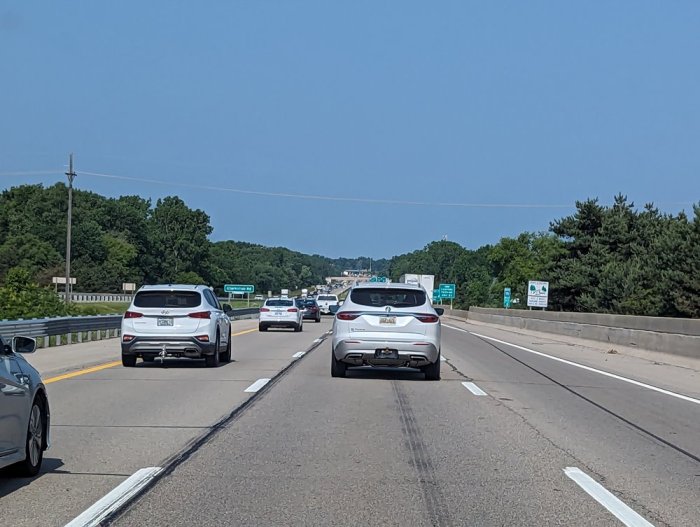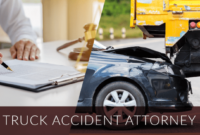Navigating the legal complexities of Virginia auto accident laws can be daunting, but understanding your rights and responsibilities is crucial. This guide provides a comprehensive overview of Virginia’s auto accident laws, helping you determine fault, pursue compensation, and protect your interests.
Determining Fault and Liability

Determining fault in Virginia auto accidents is crucial for assigning liability and determining compensation. The state follows a fault-based system, meaning the driver who caused the accident is financially responsible for the damages.
Virginia auto accident laws can be complex, and it’s important to understand your rights and options if you’ve been involved in a car accident. If you’ve been injured, you may be entitled to compensation for your medical expenses, lost wages, and pain and suffering.
Consulting with experienced auto accident law firms can help you navigate the legal process and maximize your recovery. Understanding Virginia auto accident laws is crucial for protecting your rights and ensuring you receive fair compensation.
Virginia adheres to the principle of contributory negligence, which bars plaintiffs from recovering damages if they contributed to the accident in any way. Even if the other driver was primarily at fault, the plaintiff’s own negligence can reduce or eliminate their compensation.
Understanding the nuances of Virginia auto accident laws can be crucial in navigating the legal complexities that follow a collision. While the specifics may differ from state to state, it’s worth noting that Georgia also has a comprehensive legal framework for auto accidents.
For expert guidance in such matters, consider consulting with an experienced Georgia auto law firm specializing in auto accident cases, such as the one detailed here. Their expertise can prove invaluable in ensuring your rights are protected under Virginia auto accident laws.
Common Factors Considered in Assigning Fault, Virginia auto accident laws
Negligence: Failing to exercise reasonable care, such as speeding, running red lights, or driving while intoxicated.
Comparative negligence: Assigning a percentage of fault to each driver based on their level of negligence.
Recklessness: Engaging in willful or wanton conduct that disregards the safety of others.
Sudden emergency: A situation where a driver is confronted with an unexpected and unavoidable hazard, reducing their liability.
Damages and Compensation

In Virginia, victims of auto accidents are entitled to seek compensation for the damages they have sustained. These damages can be broadly categorized into two types: economic and non-economic damages.
Virginia auto accident laws can be complex, especially when determining fault and liability. If you’ve been involved in a car accident in Mesquite, Fielding Law Auto Accident Attorneys Mesquite can help you understand your rights and options. They specialize in Virginia auto accident law and can provide you with the legal guidance you need to navigate the claims process and maximize your compensation.
Economic damages are those that have a quantifiable monetary value and include medical expenses, lost wages, and property damage. Non-economic damages, on the other hand, are those that do not have a readily ascertainable monetary value and include pain and suffering, emotional distress, and loss of enjoyment of life.
Calculating and Pursuing Compensation
The amount of compensation that an auto accident victim can recover will vary depending on the severity of their injuries, the extent of their economic losses, and the at-fault party’s liability. To calculate the amount of compensation that you are entitled to, you should consult with an experienced personal injury attorney who can help you assess your damages and negotiate a fair settlement with the at-fault party’s insurance company.
Virginia auto accident laws can be complex and confusing, especially if you’re not familiar with the legal system. That’s why it’s important to contact a qualified Michigan auto law auto accident attorney if you’ve been involved in a car accident.
These attorneys can help you understand your rights and options, and they can represent you in court if necessary. Virginia auto accident laws are designed to protect the rights of victims, and they can help you get the compensation you deserve.
If you are unable to reach a settlement with the at-fault party’s insurance company, you may need to file a lawsuit to recover compensation for your damages. In a lawsuit, a jury will determine the amount of compensation that you are entitled to.
In the realm of law , Virginia auto accident laws play a crucial role in protecting the rights of those involved in collisions. These laws outline the legal framework for determining fault, liability, and compensation. Understanding the nuances of these laws is essential for victims seeking justice and navigating the complex legal landscape surrounding auto accidents in Virginia.
Insurance Coverage and Claims

In Virginia, drivers are required to carry minimum amounts of auto insurance. Insurance plays a crucial role in providing financial protection after an auto accident. Understanding the different types of insurance policies and the claims process can help you maximize your recovery.
In the aftermath of a car accident, understanding Virginia’s auto accident laws is crucial. These laws provide guidance on compensation, fault determination, and insurance coverage. However, if you’re involved in an accident outside Virginia, it’s essential to seek legal counsel familiar with the specific laws of that state.
For instance, in Michigan, michigan auto law – auto accident attorneys can assist you with understanding the nuances of Michigan’s auto accident laws and protecting your rights.
Types of Insurance Policies
Liability Insurance: Covers bodily injury and property damage caused to others in an accident you are at fault for.
Collision Insurance: Covers damage to your own vehicle regardless of who is at fault.
Comprehensive Insurance: Covers damage to your vehicle from non-collision events like theft, vandalism, or natural disasters.
Uninsured/Underinsured Motorist Coverage: Provides coverage if you are injured by a driver who is uninsured or underinsured.
The coverage limits for each type of policy vary, so it’s important to review your policy and adjust the limits as needed.
Claims Process
Report the Accident: Notify your insurance company and the other driver’s insurance company as soon as possible.
Gather Evidence: Collect police reports, medical records, witness statements, and photos of the damage.
File a Claim: Submit a claim to your insurance company and provide them with the evidence you gathered.
Negotiate a Settlement: The insurance companies will negotiate a settlement amount to cover your damages.
Receive Payment: Once the settlement is agreed upon, you will receive payment from your insurance company.
Tips for Maximizing Recovery
Hire an Attorney: An attorney can help you navigate the claims process and negotiate a fair settlement.
Document Your Damages: Keep a record of all medical expenses, lost wages, and other expenses related to the accident.
Don’t Sign Anything: Do not sign any settlement agreements without consulting with an attorney.
Be Patient: The claims process can take time, so be patient and persistent in pursuing your recovery.
Legal Representation and Resources: Virginia Auto Accident Laws
Engaging an experienced legal representative after an auto accident can significantly enhance your chances of obtaining fair compensation and protecting your rights. Legal counsel provides invaluable guidance throughout the claims process, ensuring your interests are represented effectively.
Finding a Qualified Attorney
Choosing the right attorney is crucial. Look for professionals specializing in personal injury law, particularly those with experience handling auto accident cases. Check their credentials, track record, and online reviews to assess their competence and reputation.
Clarifying Questions
What is the statute of limitations for filing a Virginia auto accident claim?
Two years from the date of the accident.
Is Virginia a fault or no-fault state?
Virginia is a fault-based state, meaning the driver who caused the accident is liable for damages.
What types of damages can I recover in a Virginia auto accident case?
Economic damages (medical expenses, lost wages) and non-economic damages (pain and suffering, emotional distress).




